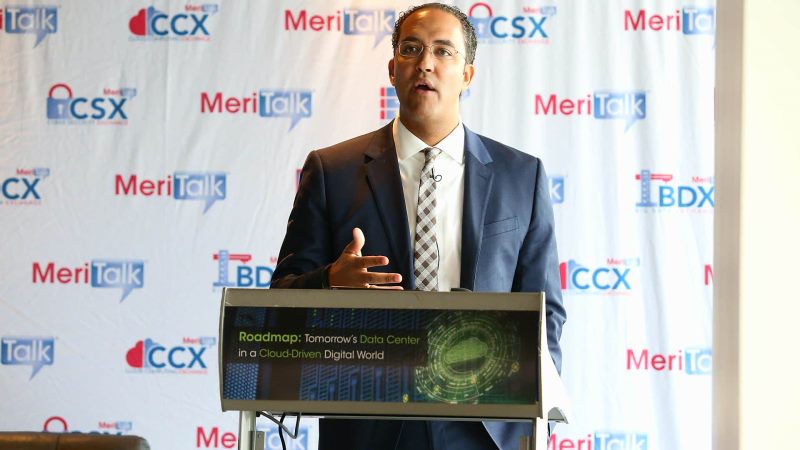
Rep. Will Hurd, R-Texas, said that he almost turned down then-Rep. Jason Chaffetz when he asked him to head up the IT Subcommittee in his freshman year in Congress.
Hurd said that he was thinking about how to tell Chaffetz “no” when his staff told him that the chairmanship would actually be a great opportunity.
“My mama said don’t be a part of the problem, be part of the solution,” Hurd said at Hewlett Packard Enterprise’s Roadmap: Tomorrow’s Data Center in a Cloud-Driven Digital World event, produced by MeriTalk, on Oct. 24.
Hurd said that his committee’s goals include examining information sharing and privacy, emerging technologies, and IT procurement.
“We can chase the bad guys and protect our civil liberties at the same time,” Hurd said. “It’s hard but we can do it.”
Hurd said that when he ran for Congress he never thought he would be talking about IT procurement, but when he joined the Federal government, he realized it was a problem.
“If you don’t change the way the government operates, then you won’t change the way it procures things,” Hurd said.
Hurd said that it’s a change for some technologists to speak at a congressional hearing where the representative asking the questions knows what he’s talking about.
“Some have said I’m a little rough at times,” Hurd said.
Hurd said that people that testifying before his committee have learned that they can’t use “big words” in order to try to confuse him because it won’t work.
Hurd said that he plans to start inviting CIOs, CFOs, and agency heads or deputy heads to testify before his committee together so the agency heads will be held responsible for the IT performance of their agencies.
“Why not come join the fun?” Hurd said.
Hurd also expanded on his idea to add metrics on the Modernizing Government Technology (MGT) Act to the digital hygiene scorecard. The MGT Act will be signed into law “no later than the first week of December,” according to Hurd.
“Start making your plans now,” he said.
Hurd said that another metric would be whether CIOs know what software they have on their systems. Hurd said that six months ago, if he had asked CIOs that question, all but two agencies would have received an F.
Hurd also looked into data center consolidation and found disturbing results.
“We’ve been tracking this number for several years now. We should not be finding new data centers,” Hurd said. “What the hell?”
Hurd said agencies should have been having the conversation to move to the cloud 10 years ago.
“At some point it’s your mess and you need to know how to deal with it,” Hurd said. “The cloud is secure, FYI. It’s just like any other tool. You need to know how to defend it.”
Hurd addressed the problem that the Federal government still lacks many permanent CIOs. Hurd said that he recognizes that new CIOs experience “unique challenges” of working as senior government officials.
“We’re going to treat all of the ‘actings’ as if they are long-term government officials,” Hurd said.
